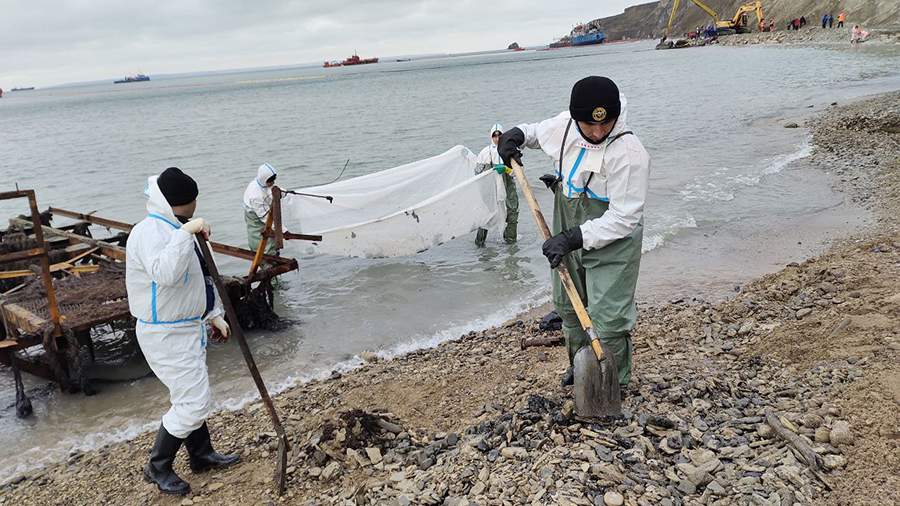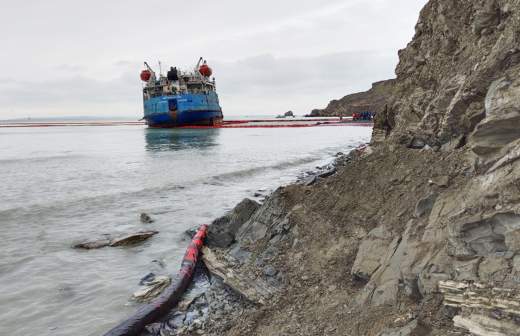Peskov reported on medical assistance to volunteers collecting fuel oil in the Black Sea
- Новости
- Society
- Peskov reported on medical assistance to volunteers collecting fuel oil in the Black Sea

Volunteers cleaning up the fuel oil spill after the accident with tankers in the Kerch Strait are provided with medical assistance when they need it. This was announced by Kremlin spokesman Dmitry Peskov on January 16.
"Those who work selflessly may be exposed to harmful influences. If necessary, in any case, all necessary medical assistance is and will be provided," Peskov said.
He explained that fuel oil emits harmful vapors and it is dangerous for people with certain diseases to breathe them. At the same time, the specialized government commission and Deputy Prime Minister Vitaly Savelyev understand this perfectly well. Peskov emphasized the importance of volunteers constantly coordinating their work with this commission.
Earlier, on January 14, Russian President Vladimir Putin thanked the volunteers who are engaged in cleaning up the fuel oil spill. The head of state added that he expects the government commission to work actively to eliminate the consequences of coastal pollution.
The next day, January 15, it was reported that near the village of Taman it was possible to localize a repeated spill of fuel oil from the tanker "Volgoneft-239". This leak was discovered on January 10, it came from a part of the vessel sitting on the shoal.
"Izvestia" on January 15 showed how EMERCOM specialists laid a protective shaft around the tanker. An access technical road was built to the stern of the vessel within a day on the instructions of the head of the ministry, Alexander Kurenkov. Savelyev told reporters that the bunding of the ship will be completed by the evening of January 16.
Tankers Volgoneft-212 andVolgoneft-239crashed in the Kerch Strait on December 15, 2024 due to bad weather. The incident resulted in a spill of oil products. 27 people were evacuated from both vessels, one person died. On the instructions of Russian President Vladimir Putin, a working group was set up to coordinate the work to eliminate the consequences of the emergency.
The press service of the Ministry of Transport of the Russian Federation said on January 2 that 2.4 thousand tons of oil products had fallen into the Black Sea after the crash of the tankers. Later, on January 3, an oil slick was found in Sevastopol at the entrance to Balaklava Bay. The next day, the fuel oil moved northward along the Crimean coast, and Sevastopol declared a regional state of emergency.

